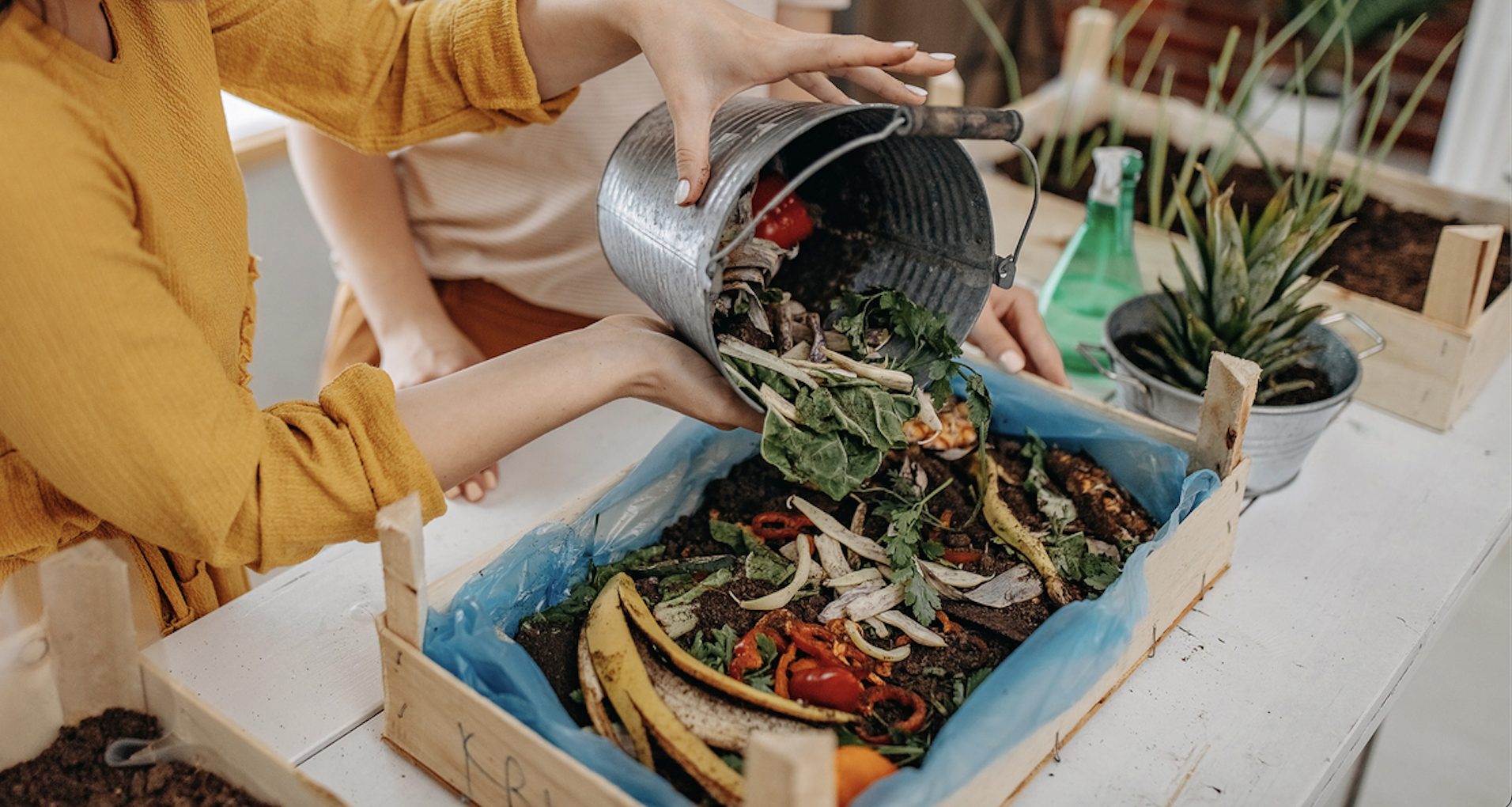How to Make Compostable Kitchen Scraps Into Garden Gold: A Simple Guide to Composting
Turning kitchen scraps into compost is a great way to reduce waste and boost your garden’s health. Learn how to easily compost fruit peels, coffee grounds, and more using simple methods like traditional composting or vermiculture. With a few easy steps, you can create nutrient-rich compost, promoting sustainability and enriching your garden.
;Resize,width=742;)
Turning your kitchen scraps into nutrient-rich compost is a great way to reduce waste while boosting your garden’s health. By composting things like vegetable peels, coffee grounds, and eggshells, you can create “garden gold”—a natural fertilizer that enriches your soil and helps your plants grow. With a few simple steps, you can start composting your kitchen scraps today and enjoy a more sustainable, eco-friendly lifestyle.
Why Compost Kitchen Scraps?
- Reduce Waste: Composting helps divert food scraps from landfills, reducing waste and the environmental impact of discarded materials.
- Improve Soil Health: The organic matter in compost adds valuable nutrients to your soil, improving its structure and water retention.
- Create a Sustainable Cycle: Composting is a way to recycle kitchen waste back into nature, creating a circular system that nourishes both your garden and the planet.
4 Simple Steps to Turn Kitchen Scraps Into Garden Gold
1. Collect Compostable Scraps
What to Include: Start by collecting vegetable and fruit peels, coffee grounds, tea bags, eggshells, and other organic waste. Avoid adding meat, dairy, or greasy foods, as they can attract pests and slow down the composting process.
Separate Waste: Keep a small container or compost bin on your kitchen counter to collect these scraps. Be sure to separate them from non-compostable items to prevent contamination.
Pro Tip: If you don’t have a countertop compost bin, you can easily use any container with a lid to keep things neat and odor-free.

2. Choose the Right Composting Method
Traditional Composting: If you have space outdoors, set up a compost pile or compost bin in your yard. Layer green materials (like food scraps) with brown materials (like leaves or cardboard) to maintain balance. Turn the pile every few weeks to speed up decomposition.
Vermicomposting (Worm Composting): For smaller spaces or indoor composting, consider vermiculture. Worms break down organic matter more quickly, and their castings create excellent compost.
Bokashi Composting: This method uses a fermentation process to break down kitchen scraps, including dairy and meat, which is not typically recommended for traditional composting.
Pro Tip: The ideal compost ratio is 3 parts brown material (carbon-rich) to 1 part green material (nitrogen-rich). This balance helps speed up the composting process.
3. Maintain Proper Moisture and Airflow
Moisture Control: Keep your compost pile or bin moist, but not soaking wet. If it’s too dry, the decomposition process slows down. If it’s too wet, it can become smelly and anaerobic.
Aeration: Turn your compost regularly to provide air, which is crucial for the microbes that break down the organic matter. This also prevents odors and speeds up decomposition.
Pro Tip: If your compost pile is too wet, add more brown materials like dry leaves or shredded paper. If it’s too dry, add some water to maintain the right moisture level.

4. Harvest Your Compost
Ready in 3-6 Months: Depending on the method and conditions, compost can be ready in as little as 3 months. You’ll know it’s ready when it looks dark, crumbly, and has a fresh, earthy smell.
Use It in Your Garden: Once your compost is ready, use it to enrich your garden soil. Apply it to flower beds, vegetable gardens, or even indoor plants to provide natural nutrients.
Pro Tip: Don’t use unfinished compost, as it can still be too hot and could harm your plants. Make sure it’s fully decomposed before applying it to your garden.
Final Thoughts on Turning Kitchen Scraps Into Garden Gold
Composting is a simple, sustainable practice that turns kitchen scraps into valuable fertilizer for your garden. By following these straightforward steps, you can reduce waste, create nutrient-rich soil, and promote a healthier environment. Whether you have a large backyard garden or just a few indoor plants, composting is an easy and rewarding way to make a positive impact on your home and the planet.
With just a little effort, you can turn everyday kitchen scraps into garden gold, reducing your carbon footprint while giving your plants the nourishment they need to thrive. Start composting today, and watch your garden—and the environment—benefit from the nutrients you recycle.
;Resize,width=767;)


;Resize,width=712;)
